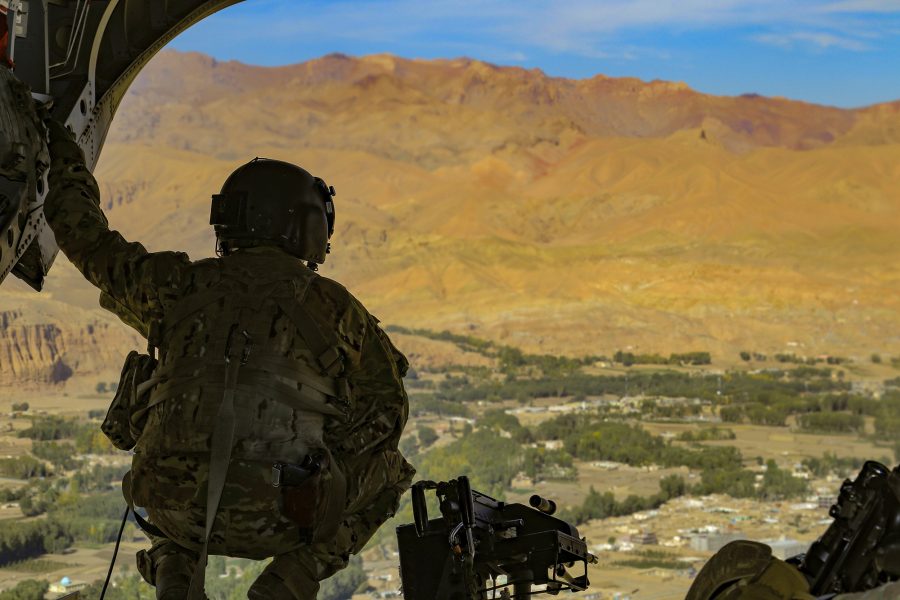The United States will have spent, or be obligated to spend, approximately $6.4 trillion by the end of fiscal 2020 on conflicts that arose in the wake of the Sept. 11 terror attacks, according to a Nov. 13 estimate published by the Costs of War Project.
This massive price tag is not Defense Department specific, according to report author and Costs of War Project co-director Neta Crawford. The project’s deep-dives into war-related costs intentionally look beyond military spending to enable “a standardized, and perhaps more important, transparent, and comprehensible accounting for the costs of” these conflicts “using categories that include US budgetary data across relevant agencies, and estimates of future veterans’ care and the interest on borrowing to pay for the wars,” wrote Crawford. For context, Crawford points out that the Pentagon’s overseas contingency operations spending comprises less than 40 percent of the approximately $6.4 trillion estimate presented in the report.
The report presents costs in current dollars and rounds figures “to the nearest billion or hundred billion,” according to the report.

While appropriations account for about $5.4 trillion of that approximately $6.4 trillion total, Crawford writes, at least $1 trillion more must be used to cover the costs of caring for the American veterans involved in these conflicts in future decades.
The total number of post-9/11 war veterans—a demographic that tends to be less healthy than its predecessors— reached 4.1 million in 2018, according to the paper. Medical advances helped a number of these service members survive the conflicts they were involved in, but it also left them with more service-connected disabilities than previous generations of war veterans.
“These veterans, exposed to different field conditions and who often served multiple deployments, need more and different kinds of medical care than the veterans of previous wars and those costs will only rise,” Crawford writes.
The report predicts that, even if the US were to pull out of conflict hotspots before the end of fiscal 2020, the financial burden of these engagements would keep climbing.
“These wars, and the domestic counterterror mobilization, have entailed significant expenses, paid for by deficit spending,” Crawford writes. “Thus, even if the United States withdraws completely from the major war zones by the end of FY2020 and halts its other Global War on Terror operations, in the Philippines and Africa for example, the total budgetary burden of the post-9/11 wars will continue to rise as the US pays the on-going costs of veterans’ care and for interest on borrowing to pay for the wars. Moreover, the increases in the Pentagon base budget associated with the wars are likely to remain, inflating the military budget over the long run.”
Crawford writes that the sale of war bonds or implementation of “a post 9/11 war tax” could help slash “the long term costs of interest on the debt associated with military spending for wars.”
Additionally, the report found that, since the start of the Global War on Terror, most major US government agencies tended to be less transparent about cost reporting; that “the costs of war” in the Pentagon’s base budget, the State Department, and the Department of Homeland Security have become more institutionalized; and that the fiscal burden of paying for veterans’ medical and disability costs is growing.
The report recommends:
- The Pentagon being more forthcoming about how it spends overseas contingency operations dollars,“for all named and unnamed OCO operations”
- DHS clarify how it spends funds to prevent and stop terror attacks, as well as funds for “other post-9/11 war missions”
- The Veterans Affairs Department “consistently” itemize the funds it spends on post-9/11 veterans from the funds it spends “on veterans of the 1991 Gulf War and its associated operations”
The Costs of War Project is a joint venture of the Watson Institute for International and Public Affairs at Brown University and the Frederick S. Pardee Center for the Study of the Longer-Range Future at Boston University.
